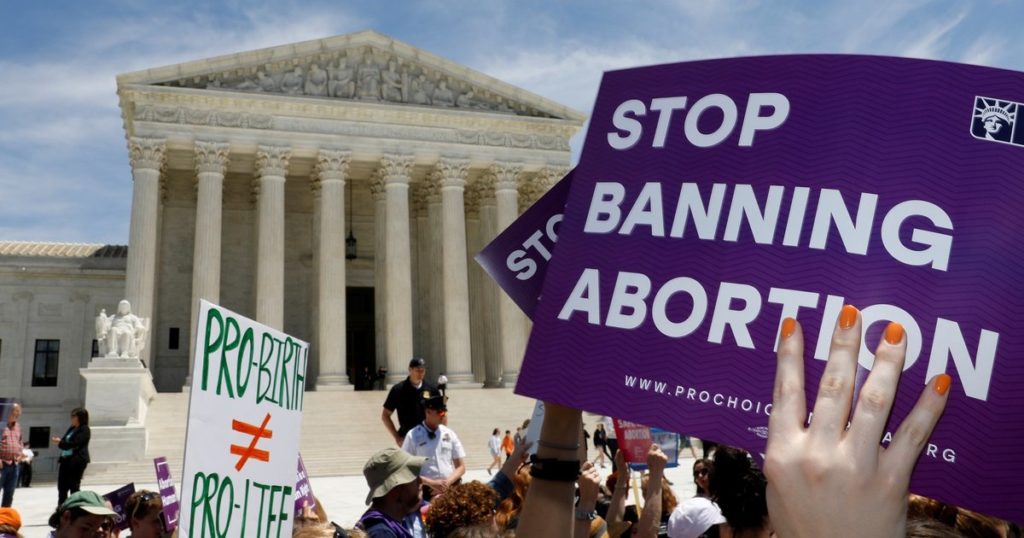America and abortion have always been an issue that has divided its citizens, with recent figures showing 49% pro-choice and 47% anti-abortion. Since the decision in the controversial Supreme Court case Roe v. Wade, Conservative states in America have been trying to figure out a master plan to get the courts to repeal the law. Hope seemed to be lost until Donald Trump became president. One of Trump’s main campaign points was to overturn Roe. Once Trump nominated three conservative judges during his presidency, it gave the green light for conservative states to develop loopholes to get around the federal abortion law. Recently, Texas succeeded in its plans to slowly disseminate Roe v. Wade and change the rights of women’s bodies as we know it. The new Texas law sets a dangerous precedent for society, and it is only the beginning.
What is the Texas Abortion Law?

(Associated Press)
In short, the “Heartbeat Bill” bans abortion procedures after six weeks of pregnancy. At least eight types of similar heartbeat bills have passed in recent years but have faced court challenges that counter Roe v. Wade, the case that established the right to an abortion in 1973 America. The signing of Texas’ Heartbeat Bill opened up a new gateway in a battle over abortion restrictions.
The lawmakers in Texas were very strategic in how they wrote the bill. Rather than having state officials enforce the abortion ban, the law empowers private citizens by suing abortion entities, providers, and other citizens who aid in the abortion process. This particular provision makes it harder for abortion rights groups to sue state officials because they are not the ones who enforce the law.
Why does it Matter?

While the landmark case ultimately gave women the right to have full authority over their bodies, Texas’ Heartbeat Bill is just one step closer to overturning those rights. Most women do not know that they are pregnant before six weeks. This bill also opens the door for almost any private citizen to sue anyone for aiding in abortions. Simply put, a citizen can sue the Uber driver that takes the woman to the abortion procedure because they were involved in the process. By restricting abortion laws, any abortion will be denied, including rape and incest cases. The signing of this bill unleashes new restrictions that are the first of its kind, making it harder for the courts to block.
One Step Forward for Texas, Five Steps Back for society.

Although this bill has received extensive criticism, earlier last week, the Supreme Court refused to hear the case allowing the ban to go into effect. The fact the highest Court of the land refuses to listen to the issues with this bill is genuinely frightening. This bill sets back women and their rights to determine what is best for their bodies. The bill restricting abortions on incest and rape forces women into an uncompromising position that no one should force upon them. Additionally, the law aids to help people turn against each other and play unnecessary rent- a- cops while having an odd economic incentive for doing so.
Texas set a dangerous precedent that other states will surely follow. There is nothing wrong with disagreeing on social issues and fighting for one’s beliefs; however, the fight should be fair and not observed with malice against thy fellow neighbour. The Heartbeat Bill blatantly disregards the right to privacy a woman has over her own body, and no one has the right, especially a private citizen, to tell her what is best for her.


